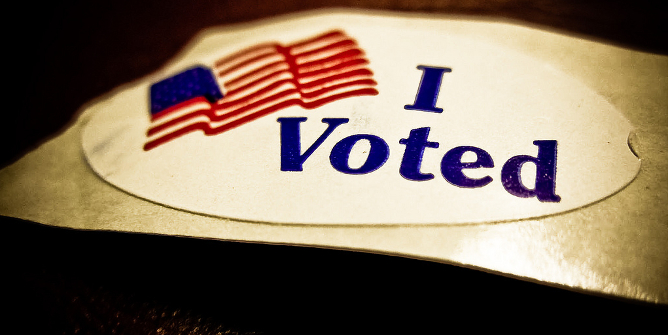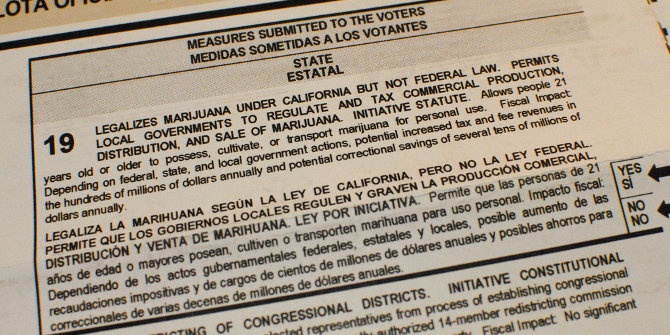 Over the holidays, Maine joined Colorado in barring Donald Trump from the presidential ballot in 2024. On Wednesday, Trump responded by requesting the Supreme Court intervene in the case. In this Q&A, Thomas Gift explains why the Court is almost certain to hear an appeal, why Trump is likely to prevail, and what the latest round of legal challenges means for the Republican primaries.
Over the holidays, Maine joined Colorado in barring Donald Trump from the presidential ballot in 2024. On Wednesday, Trump responded by requesting the Supreme Court intervene in the case. In this Q&A, Thomas Gift explains why the Court is almost certain to hear an appeal, why Trump is likely to prevail, and what the latest round of legal challenges means for the Republican primaries.
Will the Supreme Court hear Trump’s case?
Practically, the Supreme Court has no real choice. It has to take up the appeal to the Maine ruling—and quickly. The worst outcome would be a scattershot process where Trump is ordered off the ballot in some states, allowed to stay on it in others, and all this confusion occurs against the backdrop of the upcoming primaries. If the case isn’t ruled on, it could also create a new layer of complications. State Republican parties could try to circumvent these rulings by shifting from primaries to caucuses (or even cancel voting all together). That would require a waiver from the Republican National Committee. But it could also trigger lawsuits by state governments to prevent the change. So, there’s real urgency to get this resolved. My best guess is that we’ll get an answer, at the latest, by Super Tuesday on March 5th. That’s when Colorado and roughly 15 states plan to hold their primaries.
What are the arguments Trump’s team will put forward?
Substantively, there are several points that Trump’s legal team are likely to make in the litigation. The first is that the 14th Amendment is very clear: It states that “[t]he Congress shall have power to enforce, by appropriate legislation, the provisions of this article.” The implication is that other government entities lack this power. Second, Section 3 explicitly says that the insurrectionist clause applies to, among other roles,“officers” of the United States, and the president arguably doesn’t qualify as an officer. Third, the Constitution already sets out provisions for executive impeachment under Article II, Section 4. So, the claim is that the 14th Amendment wasn’t designed to substitute for that accountability mechanism. Lastly, Trump has never formally been formally convicted of “insurrection.” Defenders say it’s an imprecise term that would need to be adjudicated.
Who do you think will win if the case goes before the Supreme Court?
In the end, my bet is that Trump will prevail. That’s not because he doesn’t have liability for January 6th. He absolutely does. And it’s not even because conservatives have a 6-3 majority on the Court, although that certainly doesn’t hurt. Instead, I think it’s largely just a jurisdictional issue. I expect the ruling will be that state officials in Colorado and Maine didn’t have the authority to disqualify Trump from the ballot. I’m most persuaded by the claim that only Congress can bar an individual from running for office under the 14th Amendment. That’s explicitly enumerated in Section 5. It also accords with what I’d consider a common-sense reading of the amendment. The idea that the founders envisioned a scenario where a relatively low-level state official could determine the eligibility of a presidential candidate strikes me as dubious.
How will this affect Trump politically?
The effort to remove Trump from the ballot is an enormous political gift, particularly in the primaries. Admittedly, I think some Democrats actually like that because they perceive Trump as more beatable in the general election. Still, the record is clear: Every single time lawyers have gone after Trump, he’s used it to fundraise, cast himself as the victim, and bolster his standing in the polls. It’s no coincidence that, 91 criminal indictments later, Trump’s grip on the conservative base is as strong as it’s ever been. That’s borne out by every Republican primary poll. If someone was going to upset Trump this cycle, all the political stars would have to align, and that candidate would have to run a nearly perfect campaign. Instead, all the political stars have aligned for Trump, and candidates like Nikki Haley and Ron DeSantis certainly haven’t been flawless.
- These remarks are based in part on interviews by Thomas Gift for BBC World News on Jan. 29, 2023 and CNN’s “Newsroom” on January 1, 2024.
- Featured image: Photo by Ian Hutchinson on Unsplash
- Please read our comments policy before commenting.
- Note: This article gives the views of the author, and not the position of USAPP – American Politics and Policy, nor the London School of Economics.
- Shortened URL for this post: https://bit.ly/3S20qHn







The author might well be correct on what the Court will say or do. But this reading of the 14th amendment is more simplistic than that of most constitutional scholars in the American legal academy. Section 3 is regarded as self-executing (not requiring legislation by Congress) despite what Section 5 provides for the rest of the amendment. One reason for this is that Section 3 provides a Congressional super-majority avenue to remove a disqualification which presumes that the disqualification was imposed by another institution. And there are other qualifications for the presidential office (age and place of birth) that are routinely enforced directly by state officials without any enabling legislation or guidance from Congress. To be sure, the issue is legally and politically complicated and one cannot be certain how the Supreme Court will resolve it or even if the Supreme Court will choose to resolve it.
Good article. I don’t know about the legal arguments but to me it is self-evident that every attempt to pursue Trump through the courts( for Jan 6; his businesses, or alleged corruption) simply motivates his base. It hurts to say this, but perhaps it would have been better to ignore him entirely and let him fester without publicity?